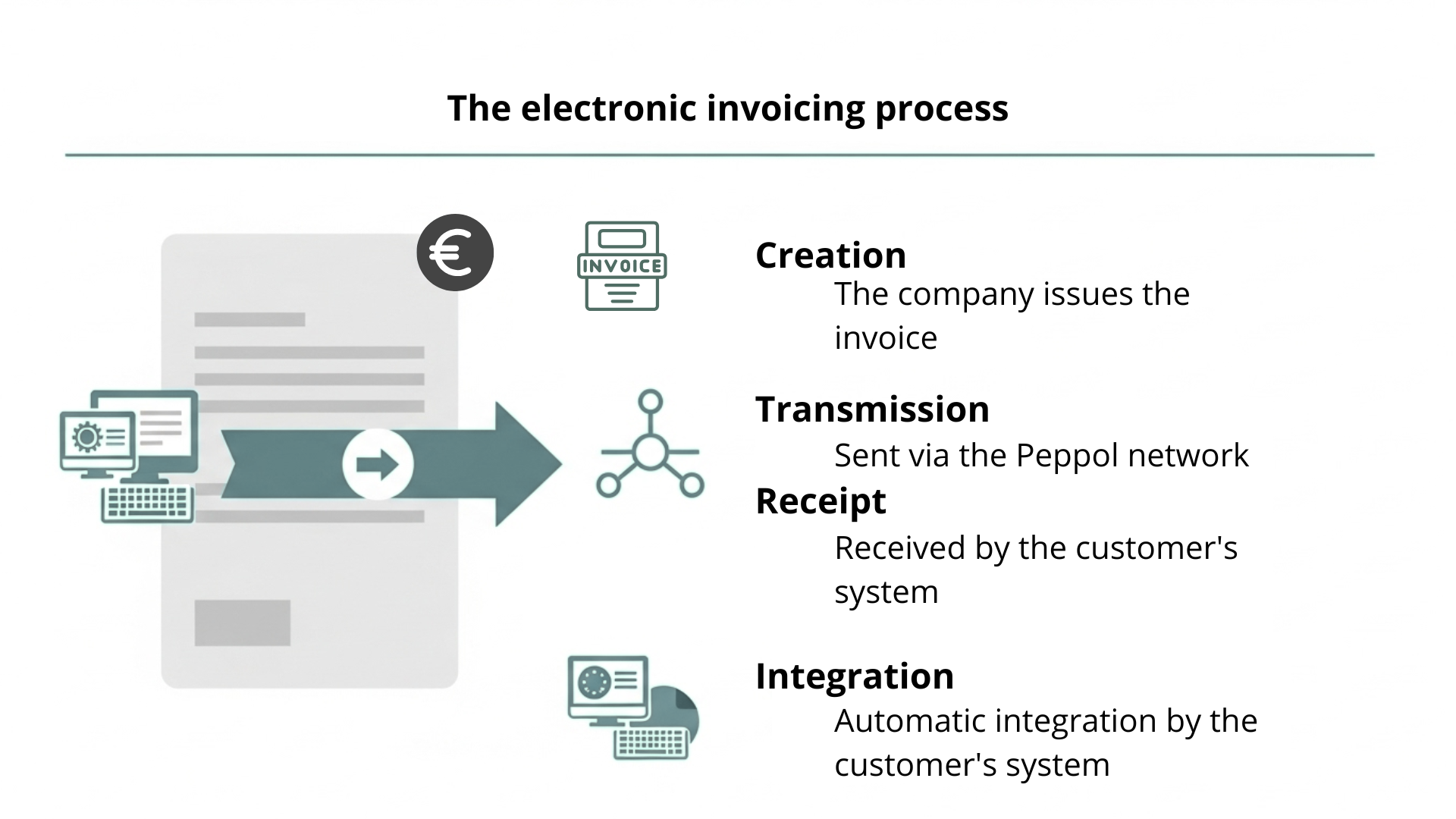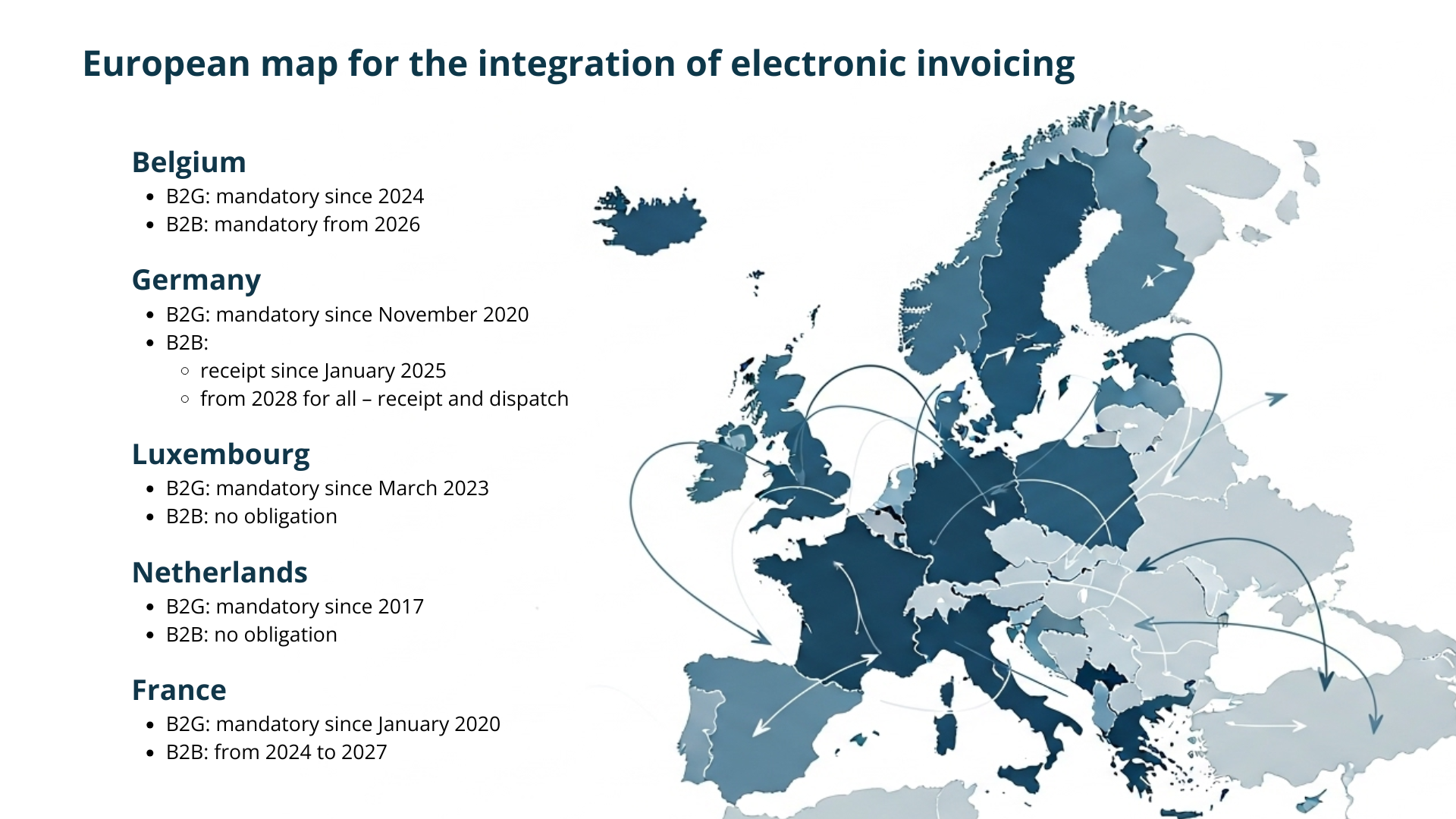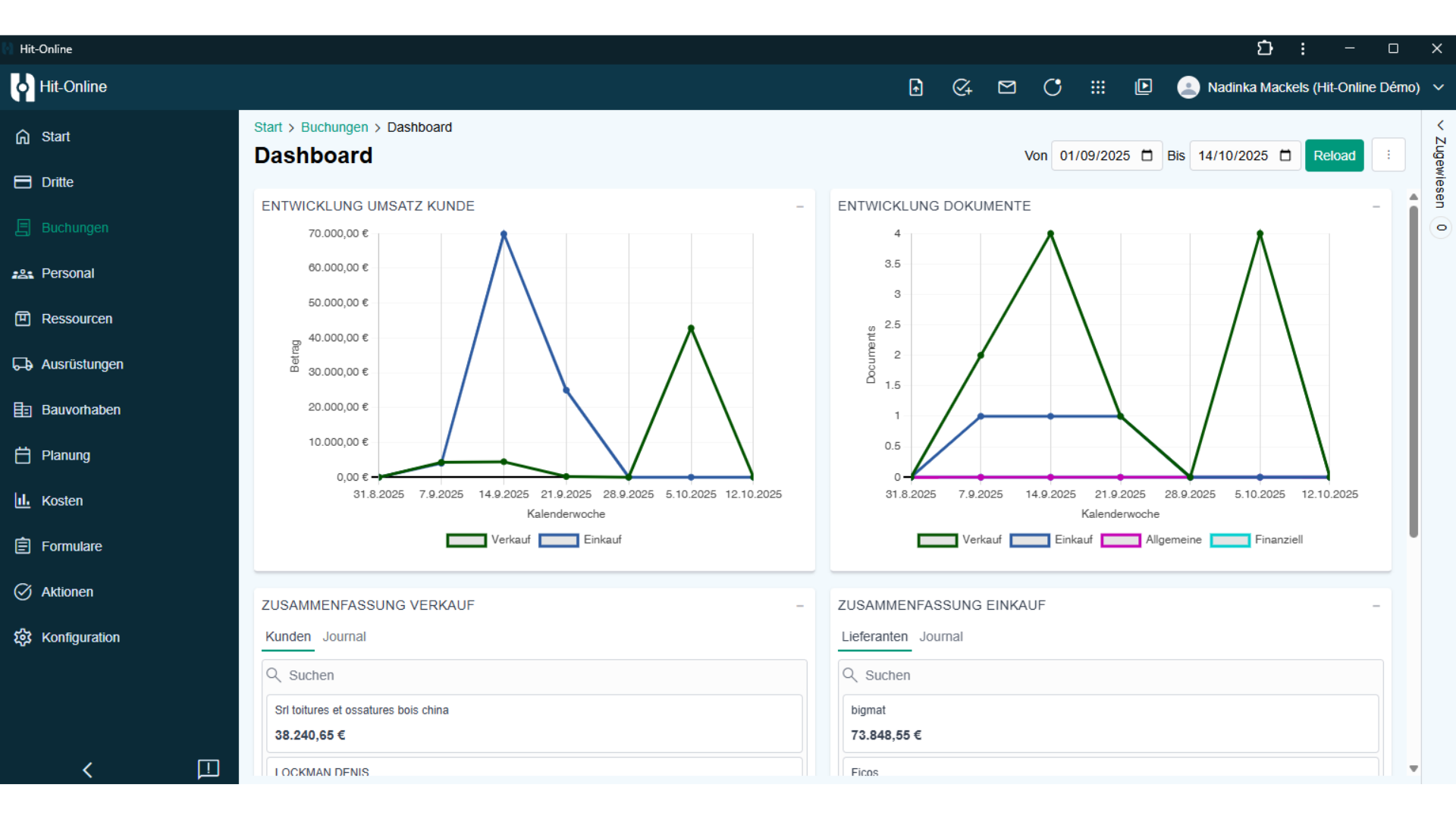E-invoicing and Time Optimization

E-invoicing and Time Optimization: How Construction Companies Can Turn a Legal Obligation into an Advantage
The digitalization of administrative processes is no longer optional but an inevitable evolution across all industries — including construction. The rollout of e-invoicing in Belgium, scheduled for January 1, 2026, for B2B transactions, perfectly illustrates this shift. However, this change should not be viewed as a mere legal constraint. For construction companies, it represents a unique opportunity to optimize workflows, reduce errors, and save significant administrative time.
Electronic invoicing relies on the creation, transmission, and reception of invoices in a structured format that can be automatically read and processed by accounting or ERP software. Unlike PDF or paper documents, these invoices are designed to be processed without manual intervention. The European standard format is Peppol-BIS, compliant with EN 16931, and used through the secure PEPPOL network.
In Belgium, this format has been mandatory for all invoices sent to public administrations (B2G) since 2024 and will extend to B2B exchanges in 2026. Other European countries, such as France, Germany, and the Netherlands, are following the same path. The goal is clear: make invoicing faster, more transparent, and interoperable.
Turning an Obligation into an Efficiency Driver
For many construction companies, administrative management remains time-consuming: invoice processing, payment tracking, reminders, archiving, manual entries… These necessary tasks represent a significant hidden cost. E-invoicing automates these processes, transforming a legal obligation into a lever for efficiency and profitability.
By switching to structured electronic invoices, you eliminate data re-entry and human errors. Invoices sent or received via PEPPOL are directly integrated into your accounting or management software, reducing processing times, disputes, and improving cash flow visibility.
In the construction sector, where each project involves multiple stakeholders — suppliers, subcontractors, architects, engineering firms — this smooth exchange has a direct impact on coordination and project scheduling.

Understanding How E-invoicing Works via PEPPOL
The PEPPOL (Pan-European Public Procurement Online) network is the backbone of this system. It enables the secure exchange of electronic documents between companies and administrations across Europe. When an invoice is issued, it passes through a PEPPOL access point, which validates, standardizes, and automatically delivers it to the recipient. They receive it directly in their system — no manual steps required.
This process ensures legal compliance and data reliability. Each invoice follows a traceable path — without loss, error, or duplication.
The European Context: Toward a Fully Digital Administration
Belgium is not alone. The European Union has established a directive aiming to harmonize e-invoicing formats and promote their adoption across both public and private markets. In France, the rollout will happen gradually between 2026 and 2027. The goal is to create a unified economic space where companies can exchange information fluidly, securely, and automatically, regardless of their internal systems.

For the construction sector, this means digitalization goes beyond invoicing — it extends to project management, site tracking, resource planning, and communication between stakeholders.
The Concrete Benefits for Construction Companies
Adopting e-invoicing fits into a broader logic of time and resource optimization. It automates repetitive tasks that previously required hours of manual work — but the benefits go further.
By automating your incoming and outgoing invoices, you reduce administrative workload and shorten validation times. You gain clearer visibility over your cash flow, helping you plan payments and collections more efficiently. You also enhance the reliability of your accounting data: fewer errors, fewer disputes, greater clarity.
This transformation opens the door to proactive management. Information becomes available in real-time, dashboards reflect current operations, and decisions are based on accurate data.
How Hit-Online Helps Companies Benefit from This Transition
At Ficos, we’ve been supporting construction companies in their digital transformation for years. Our mission goes beyond e-invoicing compliance: we help clients optimize their entire management chain — from planning to invoicing, including project tracking and team coordination.
Our solutions allow you to centralize all information in one place: quotes, invoices, payments, site documents, schedules. No more multiplying Excel files or wasting time searching for scattered data.
Hit-Online also lets you automate invoicing workflows. Invoices can be validated, filed, and sent automatically according to your internal settings. This ensures PEPPOL compliance while simplifying your team’s daily work.
With PEPPOL integration and access points, issuing and receiving electronic invoices becomes seamless. You can track invoices in real-time, identify late payments, and generate analytical reports in one click.

From Compliance to Competitiveness
Adopting e-invoicing is not just about compliance — it’s an investment in competitiveness. Every hour saved on administrative work is an hour gained on-site. Every avoided error means one less dispute.
In a context where project profitability often depends on precise time and cost management, digital tools have become indispensable allies.
With Hit-Online, you can turn your organization into a smooth, interconnected system where invoicing, resource management, and project tracking integrate naturally.
How to Prepare Today
Implementing e-invoicing doesn’t happen overnight. It requires careful preparation. You can already audit your internal processes, identify tasks that can be automated, and choose a technology partner to support your transition.
The key to success lies in anticipation. By adopting tools like Hit-Online before the obligation takes effect, you ensure a smooth, disruption-free transition.
To learn more or test the solution, you can create your free account and discover how Hit-Online can turn your administrative management into a strategic advantage.
Conclusion
E-invoicing is just one step toward the full digitalization of the construction industry. By acting now, you’re not merely complying with the law — you’re gaining a head start on the competition.

Companies that adopt powerful, interconnected tools will be those best equipped to manage their time, costs, and margins. With Hit-Online, you can turn this evolution into a true opportunity to simplify your work, increase efficiency, and free up time for what really matters: your projects.
Enjoy 2 free months to test e-invoicing with Hit-Online and discover its full potential for your construction business.
Make your construction company future-ready
Trust Hit-Online, the software made by construction professionals for construction professionals.
Get Free Demo